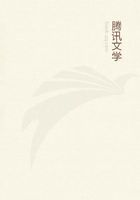Though Darwinism has had a great influence on philosophy considered as a striving after a scientific view of the world, yet here is a point of view --the epistemological--where philosophy is not only independent but reaches beyond any result of natural science. Perhaps it will be said: the powers and functions of organic beings only persist (perhaps also only arise) when they correspond sufficiently to the conditions under which the struggle of life is to go on. Human thought itself is, then, a variation (or a mutation) which has been able to persist and to survive. Is not, then, the problem of knowledge solved by the evolution hypothesis? Spencer had given an affirmative answer to this question before the appearance of "The Origin of Species". For the individual, he said, there is an a priori, original, basis (or Anlage) for all mental life; but in the species all powers have developed in reciprocity with external conditions. Knowledge is here considered from the practical point of view, as a weapon in the struggle for life, as an "organon" which has been continuously in use for generations. In recent years the economic or pragmatic epistemology, as developed by Avenarius and Mach in Germany, and by James in America, points in the same direction. Science, it is said, only maintains those principles and presuppositions which are necessary to the simplest and clearest orientation in the world of experience. All assumptions which cannot be applied to experience and to practical work, will successively be eliminated.
In these views a striking and important application is made of the idea of struggle for life to the development of human thought. Thought must, as all other things in the world, struggle for life. But this whole consideration belongs to psychology, not to the theory of knowledge (epistemology), which is concerned only with the validity of knowledge, not with its historical origin. Every hypothesis to explain the origin of knowledge must submit to cross-examination by the theory of knowledge, because it works with the fundamental forms and principles of human thought. We cannot go further back than these forms and principles, which it is the aim of epistemology to ascertain and for which no further reason can be given. (The present writer, many years ago, in his "Psychology"(Copenhagen, 1882; English translation London, 1891), criticised the evolutionistic treatment of the problem of knowledge from the Kantian point of view.)But there is another side of the problem which is, perhaps, of more importance and which epistemology generally overlooks. If new variations can arise, not only in organic but perhaps also in inorganic nature, new tasks are placed before the human mind. The question is, then, if it has forms in which there is room for the new matter? We are here touching a possibility which the great master of epistemology did not bring to light.
Kant supposed confidently that no other matter of knowledge could stream forth from the dark source which he called "the thing-in-itself," than such as could be synthesised in our existing forms of knowledge. He mentions the possibility of other forms than the human, and warns us against the dogmatic assumption that the human conception of existence should be absolutely adequate. But he seems to be quite sure that the thing-in-itself works constantly, and consequently always gives us only what our powers can master. This assumption was a consequence of Kant's rationalistic tendency, but one for which no warrant can be given.
Evolutionism and systematism are opposing tendencies which can never be absolutely harmonised one with the other. Evolution may at any time break some form which the system-monger regards as finally established. Darwin himself felt a great difference in looking at variation as an evolutionist and as a systematist. When he was working at his evolution theory, he was very glad to find variations; but they were a hindrance to him when he worked as a systematist, in preparing his work on Cirripedia. He says in a letter: "I had thought the same parts of the same species more resemble (than they do anyhow in Cirripedia) objects cast in the same mould.
Systematic work would be easy were it not for this confounded variation, which, however, is pleasant to me as a speculatist, though odious to me as a systematist." ("Life and Letters", Vol. II. page 37.) He could indeed be angry with variations even as an evolutionist; but then only because he could not explain them, not because he could not classify them. "If, as Imust think, external conditions produce little DIRECT effect, what the devil determines each particular variation?" (Ibid. page 232.) What Darwin experienced in his particular domain holds good of all knowledge.
All knowledge is systematic, in so far as it strives to put phenomena in quite definite relations, one to another. But the systematisation can never be complete. And here Darwin has contributed much to widen the world for us. He has shown us forces and tendencies in nature which make absolute systems impossible, at the same time that they give us new objects and problems. There is still a place for what Lessing called "the unceasing striving after truth," while "absolute truth" (in the sense of a closed system) is unattainable so long as life and experience are going on.















